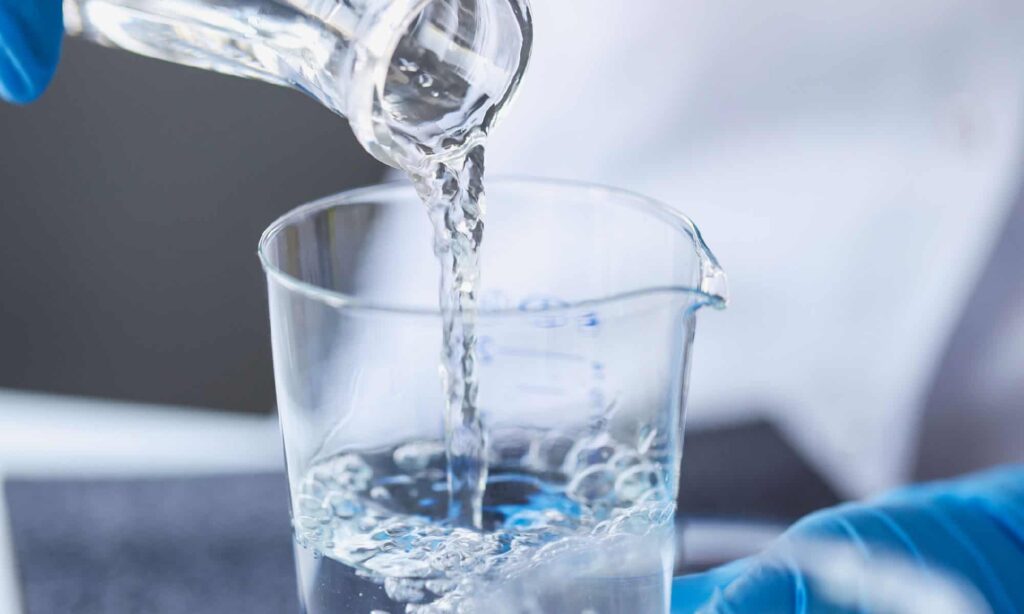Water distill is a process of purifying water through evaporation and condensation. In this process, water is heated to its boiling point to create steam, which is then cooled and condensed back into a liquid form. The resulting water is free from impurities such as minerals, salts, bacteria, and other contaminants that may be present in the original water.
The process of water distillation involves the use of a distillation unit, which typically consists of a boiling chamber, a condenser, and a collection vessel. Water is heated in the boiling chamber, and the resulting steam rises and enters the condenser. The condenser cools the steam, causing it to condense back into liquid form and collect in the collection vessel.
Water distillation is a highly effective method of water purification and is commonly used in industrial and laboratory settings. It is also used in households as a means of producing high-quality drinking water. However, it should be noted that the process of distill can be energy-intensive, and it may not be practical for large-scale water treatment operations. Additionally, some contaminants, such as volatile organic compounds, may not be completely removed through distillation alone, and additional treatment steps may be required.

Applications of distilled water
Water distillation is a versatile method of water purification that has numerous applications in various fields. Here are some of the advantages of water distill in different contexts:
- Household use: Distilled water is an excellent option for drinking, cooking, and brewing coffee and tea, as it produces a clean, clear, and tasteless water. It is also useful for humidifiers, steam irons, and other appliances that require mineral-free water to prevent mineral buildup.
- Laboratory use: Distilled water is an essential component in various laboratory applications, such as preparing solutions, conducting experiments, and cleaning laboratory equipment. The absence of impurities in distilled water ensures that laboratory results are accurate and reliable.
- Industrial use: Distilled water is used in various industrial applications, such as power generation, pharmaceutical manufacturing, and electronics manufacturing. The absence of impurities in distilled water ensures that the final product is of high quality and meets the required standards.
- Medical use: Distilled water is used in various medical applications, such as sterilizing medical equipment, preparing intravenous fluids, and wound care. The absence of impurities in distilled water ensures that medical procedures are safe and effective.
- Agriculture use: Distilled water is used in hydroponic farming, a method of growing plants without soil. Distilled water ensures that the plants receive only the nutrients required for growth, and the absence of impurities eliminates the risk of mineral buildup in the growing medium.
- Removes heavy metals: Water distill is an effective method of removing heavy metals, such as lead and mercury, from drinking water. These metals can be harmful to human health if consumed in high concentrations, and distillation provides a safe and effective way to remove them.
- Reduces water hardness: Distillation also removes minerals, such as calcium and magnesium, which contribute to water hardness. Hard water can cause problems such as mineral buildup in pipes and appliances, reduced effectiveness of soaps and detergents, and can even damage water-using appliances. Distillation eliminates these problems by producing soft, mineral-free water.
- Removes volatile organic compounds (VOCs): VOCs are chemicals that can be harmful to human health and the environment. They are commonly found in industrial waste, pesticides, and household cleaners. Distillation is an effective method of removing these contaminants from water.
- Long-term cost savings: Although the initial setup cost of a distillation unit can be high, it can be cost-effective in the long run. Distilled water eliminates the need for bottled water, water filters, and water softeners, which can add up to significant cost savings over time.
- Sustainable option: Water distillation is a sustainable option for water purification, as it does not produce wastewater or require the use of chemicals. It also conserves water by producing high-quality water that can be used repeatedly without the need for further treatment.
Advantages of water distillation
In summary, water distillation is worth it for several reasons. Firstly, it is a highly effective method of water purification, capable of removing a wide range of contaminants, including minerals, salts, bacteria, and other impurities. This makes it ideal for producing high-quality drinking water, particularly in areas where access to safe drinking water may be limited.
Secondly, water distillation produces water that is free from chemical additives, making it a natural and environmentally friendly option. Distilled water is also free from minerals, which can be beneficial for certain applications such as laboratory testing, as it eliminates potential interference from impurities in the water.
Thirdly, water distillation is a reliable and consistent method of water purification, producing consistent results every time it is used. This makes it ideal for use in industrial and laboratory settings, where consistent and reliable water quality is essential.
Finally, while water distillation can be energy-intensive, it can be a cost-effective option in the long run, particularly in areas where water treatment infrastructure is limited. Once the distillation unit is set up, it requires minimal maintenance and can produce high-quality water for years to come.
Overall, water distillation is a reliable and effective method of water purification that can produce high-quality water free from impurities, making it worth considering for various applications.